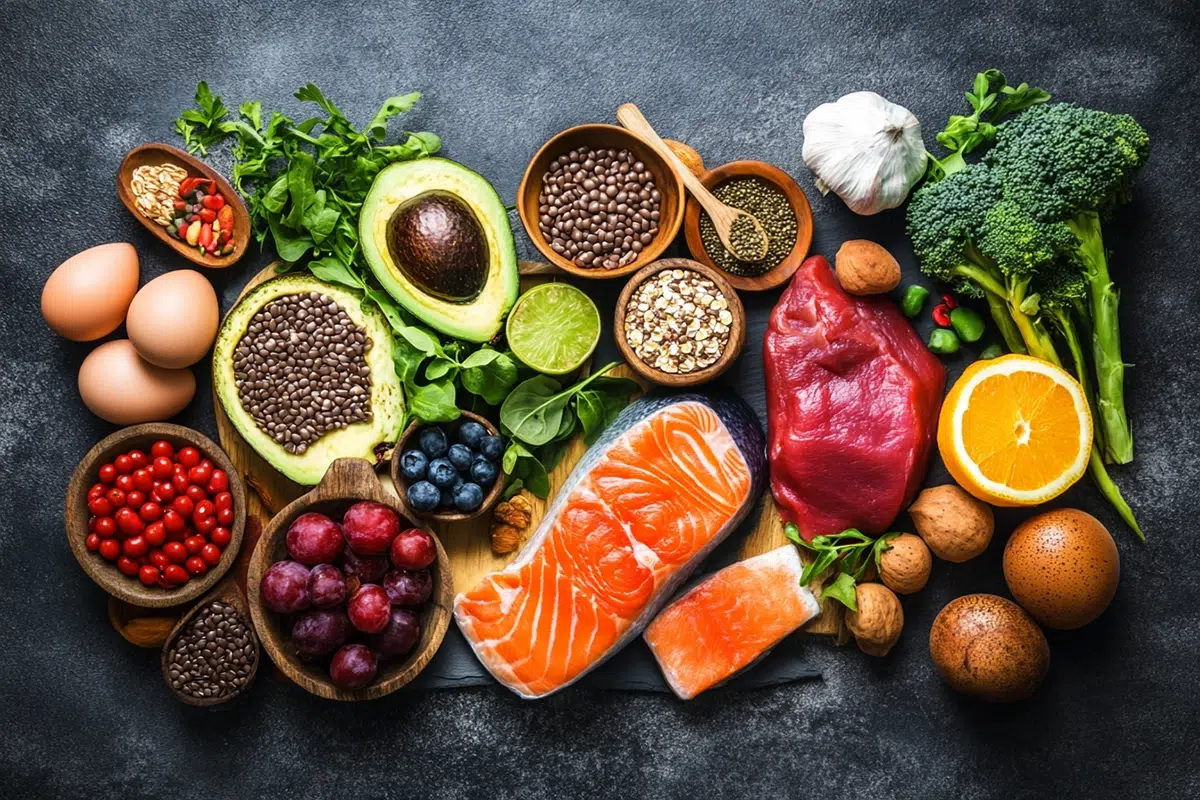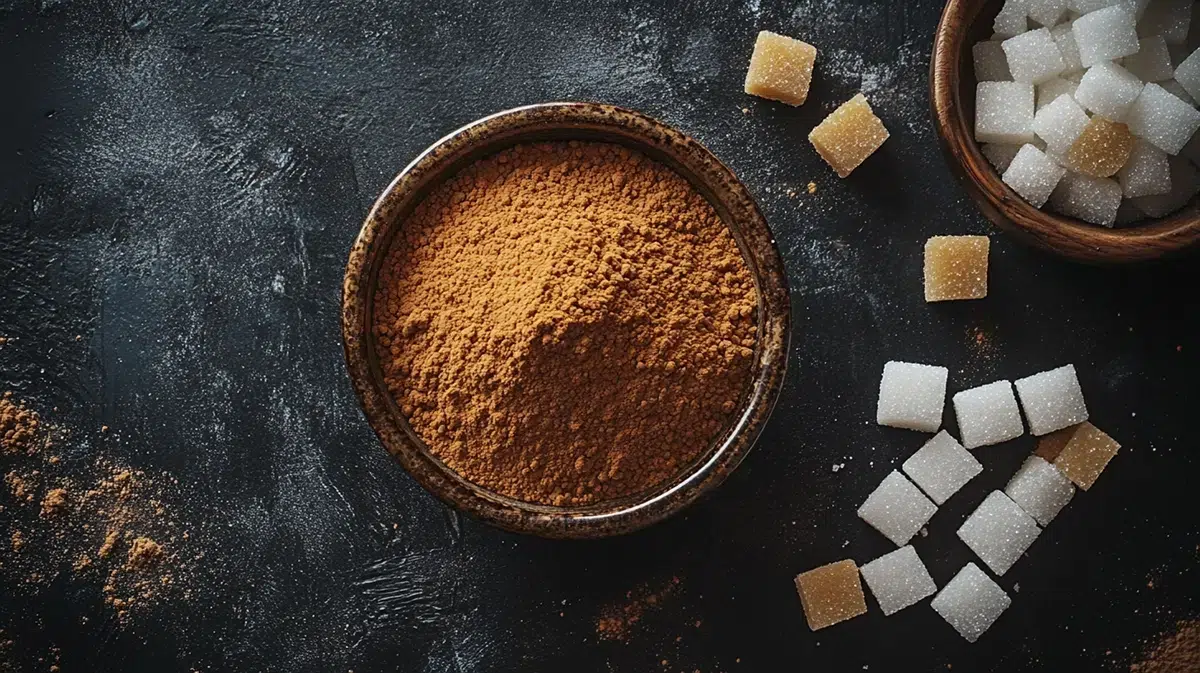Show summary Hide summary

As they age, both men and women tend to put on weight. But why do we tend to accumulate adipose tissue as we get older? There are multiple reasons explaining this; however, this is not an irreversible phenomenon. There are ways to avoid gaining weight if we’re aware of it and manage to act in time.
Want to lose weight? Get a health check first!
Explore Other REGIVIA Tools to Help You Achieve Your Goals
Why do we gain weight as we age?
A number of factors contribute to the appearance of belly fat:
The link between menopause, andropause and weight gain
For both women and men, hormonal changes can lead to weight gain, but this is not systematic.
For women, at the menopause, the sudden drop in oestrogen and progesterone secretion encourages the body to store fat and retain water. The drop in oestrogen acting in a particular way leads to a new distribution of fat. This fat will tend to accumulate in the stomach area, as it does for men.
For men, around the age of 50, during the andropause, the drop in testosterone will encourage the loss of muscle mass. The stomach starts to become overweight. It may also be prone to gynoid weight gain (in the hips, buttocks and thighs), with the increase in oestrogen levels.
How losing muscle slows down your metabolism?
After the age of 50, there is a gradual loss of muscle mass in favour of fat mass. It is estimated thatbetween the ages of 50 and 80, we lose around 30% of our muscle mass. This phenomenon is explained by the infiltration of adipose cells (adipocytes) into the muscle tissue and the reduced activity of the cells responsible for muscle regeneration.
Reduced muscle mass leads to a drop in basal metabolic rate (energy expenditure required by the body to function properly). The more muscle mass we have, the higher our basal metabolic rate and the more calories our body burns at rest. Consequently, when muscle mass decreases, we burn fewer calories.
If we don’t change our eating habits and physical activity, the calories we don’t burn will be stored as fat, leading to weight gain. Find out more about your daily calorie requirements.
What are the reasons why we gain weight as we age?

Other causes of age-related weight gain
A sedentary lifestyle
As we get older, we tend to move less. Yet a sedentary lifestyle is bad for your health. Physical activity for 30 minutes a day keeps you fit and trim. It also helps to maintain muscle mass.
If you consume more calories than your body burns, the unspent calories will turn into unwanted pounds.
Lack of sleep
Lack of sleep can also be responsible for weight gain. When you don’t get enough sleep, your body secretes ghrelin (a hormone that stimulates appetite). Conversely, the body produces less leptin (a satiety hormone). As we age, some people sleep badly or less well. Short nights can therefore contribute to weight gain.
The side effects of certain types of medication
Weight gain can be one of the side effects of certain drugs, such as antidepressants, insulin, beta-blockers, corticoids, etc
If this is the case, contact your doctor as soon as possible to report your weight gain, and under no circumstances should you stop taking your medication. If possible, your doctor may modify your treatment: lower the dose, change the medication, etc
Find out more about : Weight gain and medicines.
Lipid turnover
According to the results of a recent study in 2019, the renewal of lipids in adipose tissue slows markedly with age.
In the body, lipids or fats are stored in cells called adipocytes. These fat cells, 95% of which are made up of triglycerides, are responsible for the formation, storage and elimination of lipids into the bloodstream according to the body’s energy requirements. In this way, lipids are regularly renewed.
When we take in too much fat or if we don’t exercise enough, fat cells store the excess in the body, leading to weight gain.
Thus, as we age, for the same number of calories ingested daily, women and men are likely to increase their weight by 20%, independently of other factors such as hormonal changes and a sedentary lifestyle. However, other studies have shown that physical exercise increases the renewal of lipids and therefore combats this weight gain.
The answer to age-related weight gain: Prevention and solution

Here’s a few tips on how to avoid gaining weight as you get older
Maintaining a healthy weight as you age is entirely possible if you get to know yourself well andadopt a healthy lifestyle that respects your basic metabolism (energy expenditure) and maintains your hormonal balance.
To avoid putting on weight as we age, it is therefore important to :
Tip 1: Move more
a sedentary lifestyle melts muscles. Do at least 30 minutes of physical exercise a day, i.e. at least 5,000 steps a day. Take the stairs whenever you can. You can also take up a sporting activity: walking, cycling, swimming, yoga, jogging, tennis, etc
Tip 2: Eat well
Change your eating habits to move towards a healthy diet. The basic rules here are to favour foods with a low glycaemic index and to consume enough protein to maintain your lean body mass (your muscles).
Tip 3: Adopt a healthy lifestyle
Getting a good night’s sleep, drinking 1.5 litres of water a day, eating at regular times, practising relaxation, getting plenty of fresh air… all help you to keep your weight down and stay in good health.
Tip 4: Get a health check
From the age of 50, it is advisable to have a health check-up to detect any pathologies in good time. A blood and urine test (thyroid, blood sugar, cholesterol, triglycerides, etc.) should be suggested if you are experiencing unexplained weight gain.
What are the causes of weight gain?
















